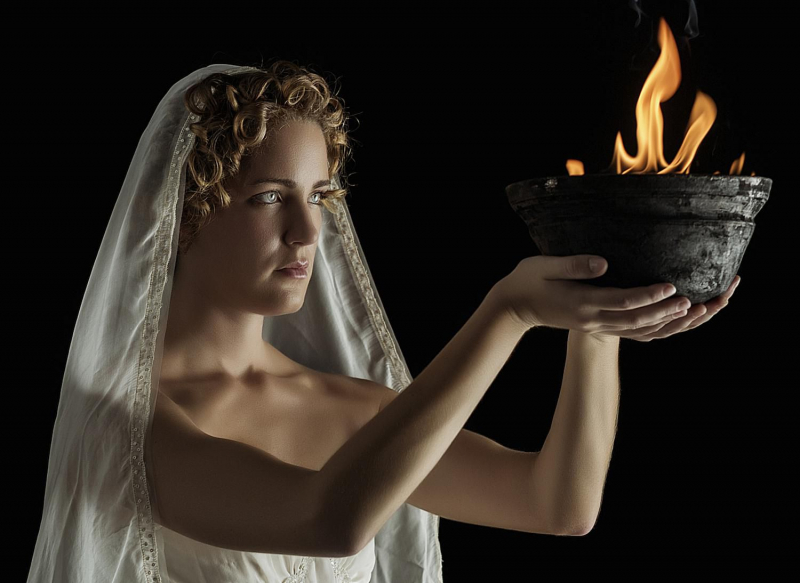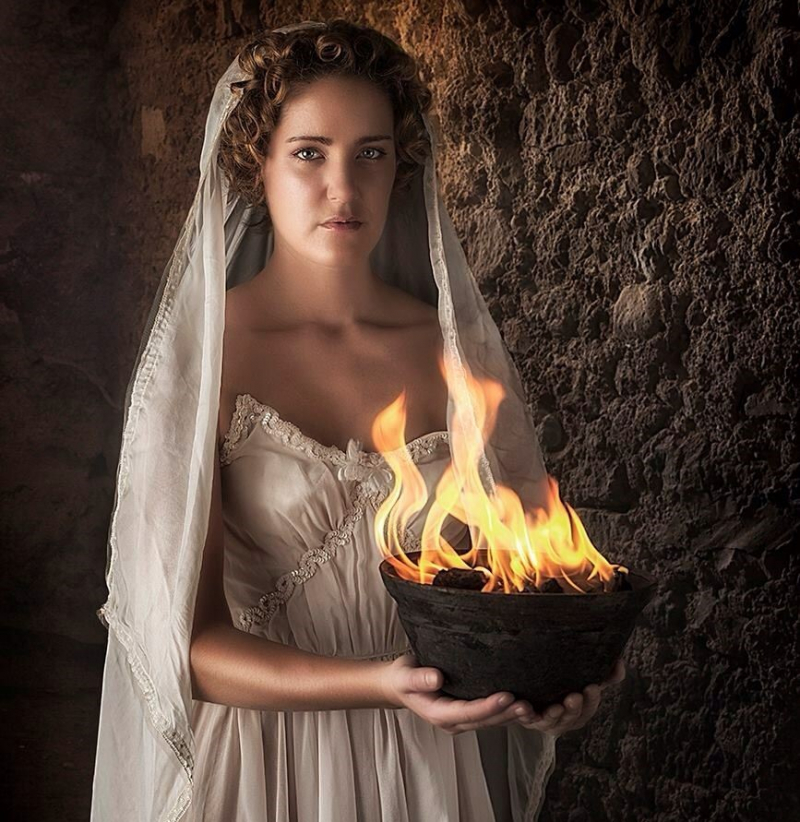Hestia Is Portrayed As A Modest Woman Wearing A Veil And Robe

Hestia is characterized as a virgin Goddess who is kind, steady, serene, forgiving, and dignified. She was confined to Mount Olympus by her domestic responsibilities. Due to her tremendous virtue, she was never included in the scandalous and exciting myths.
In contrast to the fire of the forge used in blacksmithing and metalworking, the domain of the god Hephaestus, Hestia is connected with the hearth as a physical object and the abstractions of community and domesticity. She has only sometimes and insecurely been portrayed. She occasionally appears in works of classical Greek art as a modest woman wearing a veil and robe. She may occasionally be depicted with a staff or standing by a big fire. She does not bother to choose a symbol for herself, according to Robert Graves, and is seated on a simple wooden throne with a white woolen cushion. A domestic pig served as her companion animal for sacrifice.
Hestia was the most compassionate goddess in Greek mythology. She was never involved in any disputes or scandals. She had always sought to maintain social and domestic harmony. She was one of the twelve Olympian gods because of her benevolent virtue.








